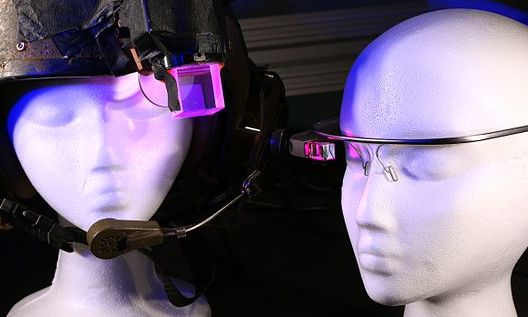Survey Results that Reflect Unflattering Truths about Public Sci-Tech Knowledge
While 2014 Science and Engineering Indicators Report, a biannual science and technology survey of the United States’ National Science Board (NSB), did not show anything so alarming about Americans’ knowledge and perception of science and technology, there have been a number of surveys that reflect not so great things about public sci-tech knowledge. These surveys surprisingly show the alarming number of people who need more education or at least exposure to information about the latest in the world of science and technology.
More than 5 out of 10 think cloud computing gets affected by stormy weather.
Well, stormy weather can very indirectly have some impact on cloud computing but this indirect effect may not be what’s on the mind of 51% of the respondents in a 2012 survey by Wakefield Research. This survey involved more than 1,000 American adult participants, more than half of whom thought that stormy weather affects cloud computing. Cloud computing, of course, refers to the technology wherein a network of servers enable centralized data storage and web-based access to these data. It may only be affected by stormy weather if such stormy weather is severe enough to destroy Internet connectivity at a grand scale, particularly the Internet connection to the servers hosting the data or services being accessed.
![By Komalrajiana (Own work) [CC-BY-SA-3.0 (http://creativecommons.org/licenses/by-sa/3.0)], via Wikimedia Commons](https://techtheday.com/wp-content/uploads/2014/05/communication-technologies.jpg)
By Komalrajiana (Own work) [CC-BY-SA-3.0 (http://creativecommons.org/licenses/by-sa/3.0)], via Wikimedia Commons
The Internet meme “Tebowing” is so popular that it may have affected the beliefs of 27% of Americans, making them think that God has a hand in the outcomes of football games.
There’s divine intervention involved in football game results, according to a January 2013 survey conducted by the Public Religion Research Institute. Yes, this may not sound like a sci-tech matter but it reflects the kind of dominance religious or superstitious thinking continues to have even on people who already have easy access to the Internet.
HTML is a sexually-transmitted disease according to 1 in 10 people.
HTML stands for HyperText Markup Language. It is the standard markup language used developing web pages or hypertext documents. It is basically a set of tags and rules the conform to SGML. However, there are people who think that it is some sexually-transmitted disease. This study comes from a coupon website called Vouchercloud, which found that 11% of those surveyed believe that HTML is an STD.
Moreover, in the same study conducted by Vouchercloud, 27% of the respondents thought that the term “gigabyte” is a type of South American insect. Around 2 out of 10 respondents also thought that “MP3” is a robot from the movie “Star Wars” and that “Blu-ray” is an animal inhabiting the seas. Other amusing findings include the misconception of 15% that “software” means comfortable clothing, the wrong idea of 42% to equate a “motherboard” to a deck in a cruise ship, and the funny belief of 12% that “USB” is an acronym for some European country.
This survey was conducted on 2,392 men and women who were at least 18 years old. It was a multiple choice type of survey wherein possible definitions were presented and the participants simply had to choose. They were not asked to give their own definitions for the words asked.
26% of Americans still think that it’s the sun that goes around the Earth.
Apparently, many Americans still have not had enough basic scientific knowledge. The knowledge that the sun is the center of the solar system and that the earth revolves around it still escaped the minds of some 1 out of 4 Americans who wrongly answered the question “Does the Earth go around the Sun or does the Sun go around the Earth?” This was asked in a 2012 survey of 2,200 people in the United States, wherein 26% of the respondents got the wrong answer.
Sex with a robot is fine for 1 in 5 British
This one’s relatively new. A 2014 survey conducted by Middlesex University (the university’s name definitely has no bearing here) found that 1 in 5 British men or women would consider sex with a robot. On the other hand, 46% of the 2,000 people surveyed said that they are okay with having carnal knowledge with a sexbot or would not judge those who are considering the act. Moreover, 33% of the people people surveyed think that robots will eventually take over the jobs of cops, teachers, and soldiers.

By Glogger (Own work) [CC-BY-SA-3.0 (http://creativecommons.org/licenses/by-sa/3.0) or GFDL (http://www.gnu.org/copyleft/fdl.html)], via Wikimedia Commons
These amusing survey results show how even the widespread availability of and ease-of-access to the Internet are not enough to address even the most basic misconceptions. There’s a need to actively inform people, to rectify mistaken beliefs or long-held misconceptions, and for everyone to put their smartphones and other web-enabled devices to proper use.
![By Dell Inc. [CC-BY-2.0 (http://creativecommons.org/licenses/by/2.0)], via Wikimedia Commons](https://techtheday.com/wp-content/uploads/2014/09/Appropriate-technology.jpg)